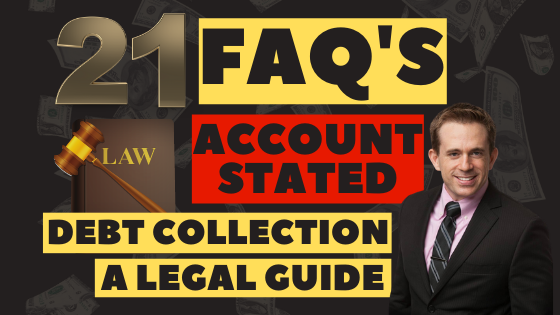Entering default judgments is big business in the court system. The vast majority of default judgments in credit-card lawsuits are entered by clerks without a judge's review. This mode of "ministerial" judgment entry by clerks is permissible only in cases where the claim is for a "sum certain"[1] and where there can be no dispute as to the amount due after liability has been established. Good examples of "sum certain" cases are actions on money judgments and negotiable instruments. At The Langel Firm, we see debt buyers—who sometimes lack good proof of a "sum certain"—nevertheless obtain clerk judgments based on bad proof merely alleging a "sum certain."
The "sum certain" component of CPLR § 3215(a) was scrutinized in Posses & Chasan CPA's, PLLC v. Raj Realty, Ltd[2] that resulted in the court vacating a $49,500 judgment sua sponte (without a party asking for it).
In Posses, an accounting firm sought a clerk's judgment for unpaid accounting fees but did not submit concrete proof of the due amount. In its complaint, the firm alleged:
- "account services rendered," which the court construed as quantum meruit[3] without a contract supporting the claim; and
- account stated, which itself may qualify as a "sum certain"[4] but failed here for reasons discussed below.
The Appellate Division has already ruled that if any cause of action is equitable[5] in nature (based on fairness versus direct legal authority), the resultant default judgment can not constitute a "sum certain" and is therefore ineligible for a clerk's default judgment under CPLR § 3215(a).
That ended the analysis in Posses, but Justice Winslow took it a step further and addressed a matter of first impression hugely relevant to credit-card cases: the indiscriminate submission of improperly authenticated account-stated claims for clerk judgments.
Conclusion:
The case of Posses & Chasan CPA's, PLLC v. Raj Realty, Ltd serves as a crucial legal milestone, challenging the traditional application of "sum certain" in default judgments. This decision emphasizes the need for concrete proof in claims and redefines the standards for clerk-issued judgments. It marks a significant shift in the legal landscape, impacting how such cases are adjudicated and highlighting the importance of fairness and authenticity in the judicial process.
An unsigned, unauthenticated[6] billing statement without proof of mailing would have failed any admissibility standard and was therefore legally invalid to support a clerk's judgment.
The lesson here is to challenge your default judgment based on the "sum certain" element, especially in debt-buyer and credit-card cases. Call us. Let's review the proof in support of your creditor's default judgment.
[1] CPLR § 3215; "Sum certain" is defined as any amount that is fixed, settled, or exact. Black's Law Dictionary, 1664 (10th ed 2014).
[2] 600532/14, NYLJ (Sup., NA, Decided October 9, 2014).
[3] Quantum meruit: A claim for the value of benefits provided without a contract, and when the plaintiff brings a claim for restitution and that value provides the measure of recovery. Black's Law Dictionary, 1437 (10th ed 2014).
[4] Cavalry Portfolio Servs., LLC v. Reisman, 55 A.D.3d 524.
[5] The law of equity: The recourse to principles of justice to correct or supplement the law as applied to particular circumstances; specif., the judicial prevention of hardship that would otherwise ensue from the literal interpretation of a legal instrument as applied to an extreme case or from the literal exclusion of a case that seems to fall within what the drafters of the instrument probably intended (ex. "The judge decided the cases by equity because the statute did not fully address the issue."). Black's Law Dictionary, 656 (10th ed 2014).
[6] Authentication: Broadly, the act of proving that something (as a document) is true or genuine, esp. so that it may be admitted as evidence; the condition of being so proved. Black's Law Dictionary, 157 (10th ed 2014).


